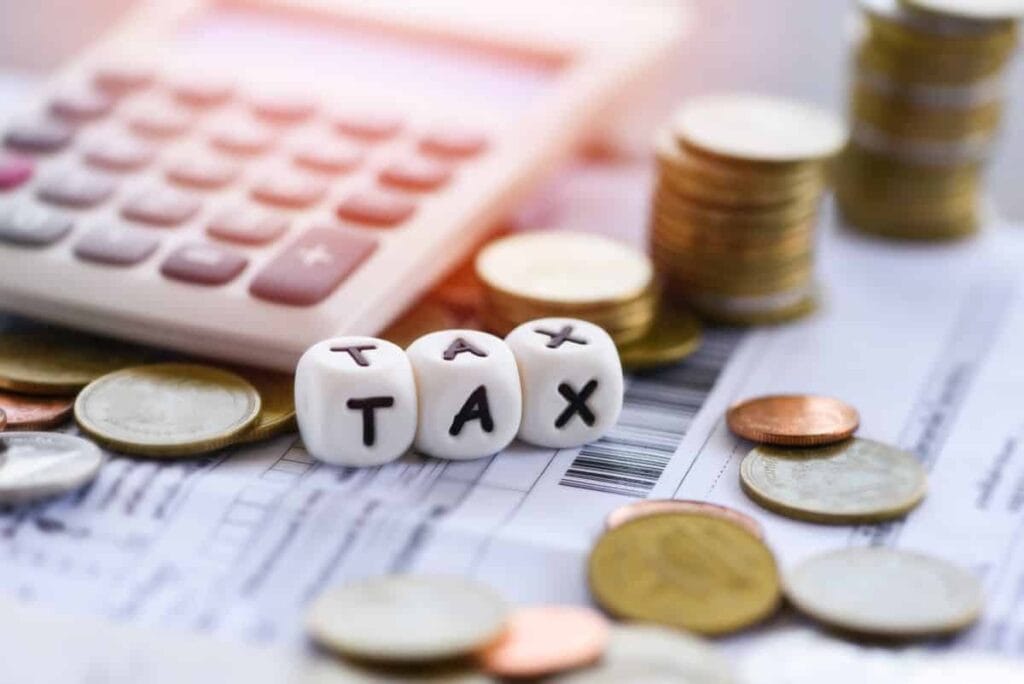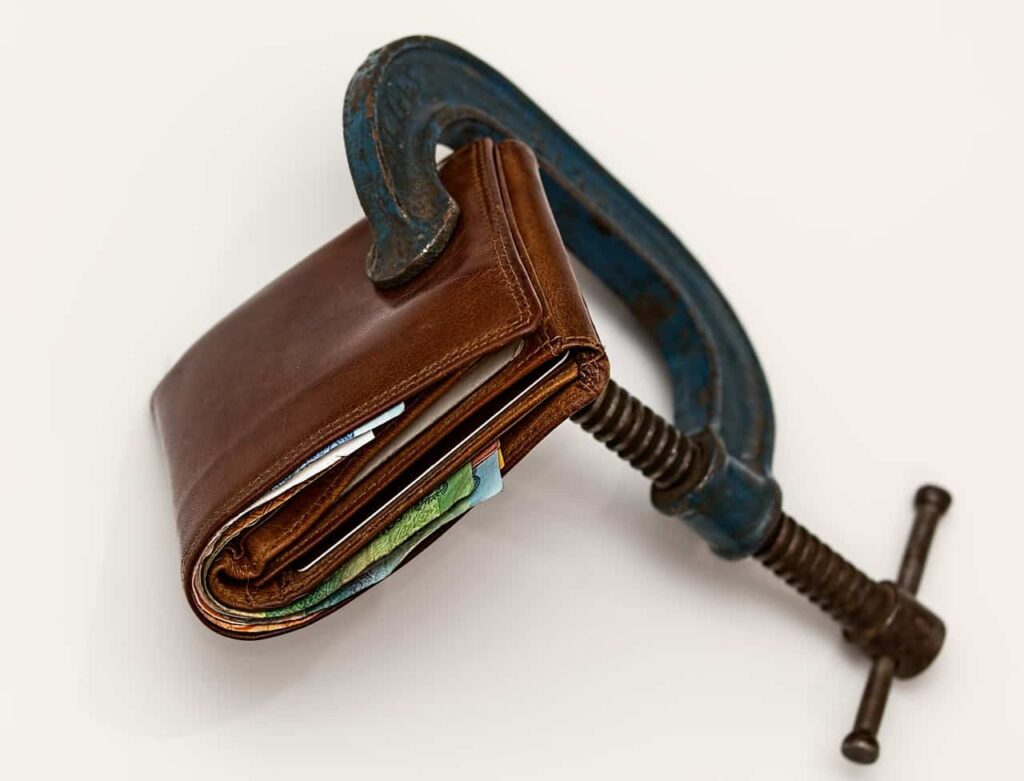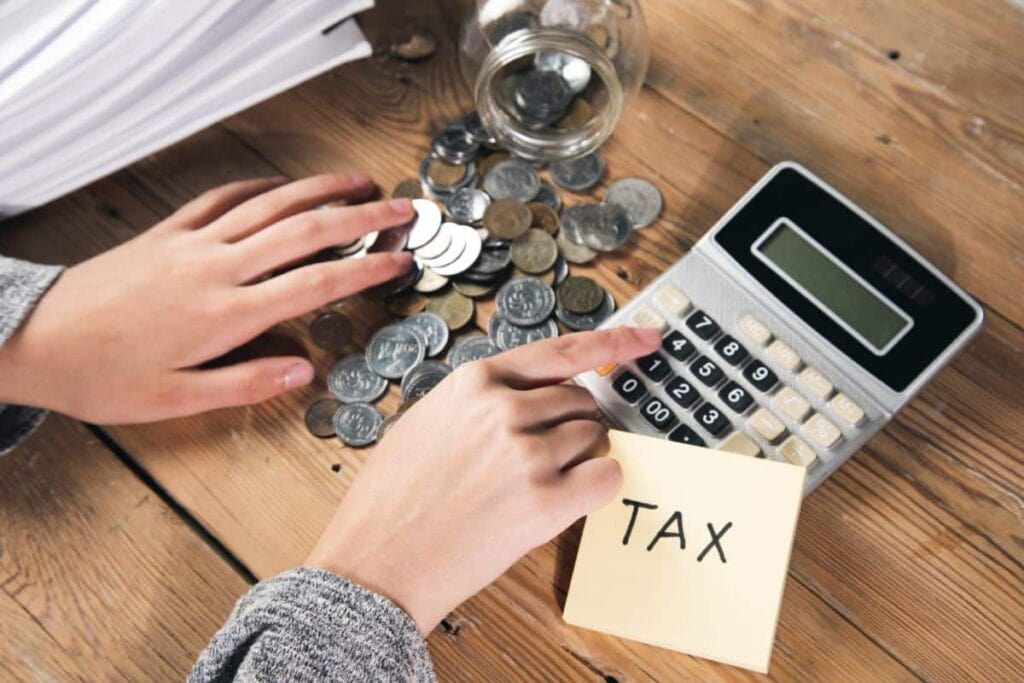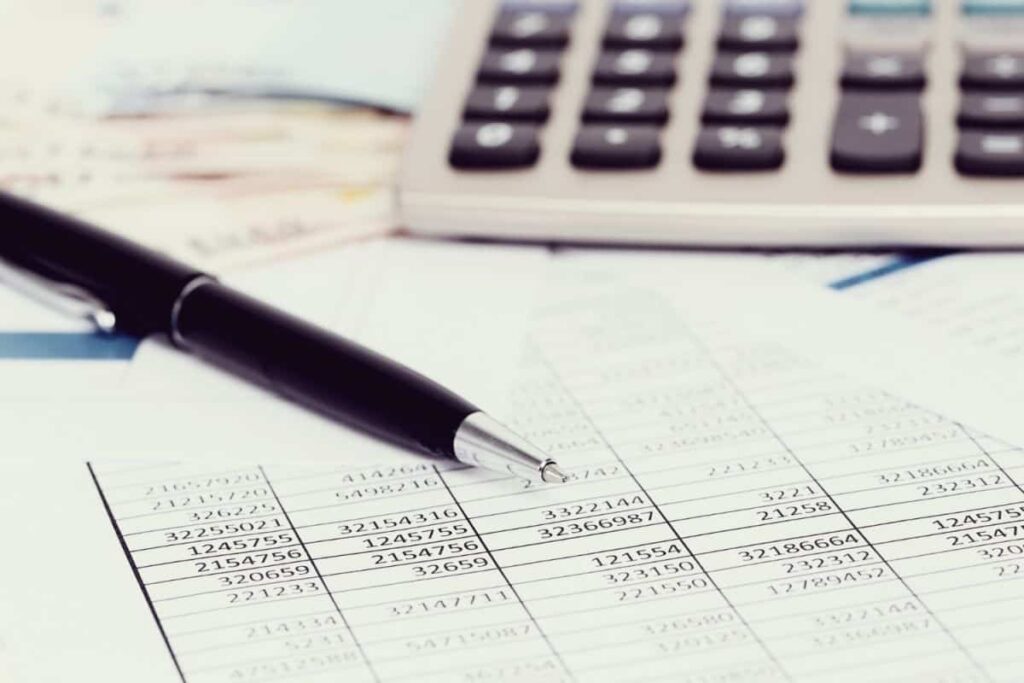Tax Tips for Second Job or Side Hustle
Do you also keep a part-time job? Or have you given any thought to beginning one of your own? If so, you’re not alone. Recent research indicates that an increasing number of people are engaging in part-time work in order to supplement their income. And this is a positive development because having a side hustle can be an excellent method to increase your income and enhance your overall monetary status. However, if you are going to take the jump and begin a side business, it is imperative that you do so in a manner that is tax-efficient.
Are you searching for a way to bring in a few additional dollars on the side? It’s possible that you’ve been giving some thought to getting a second job or beginning a side business. Despite the fact that this is potentially a fantastic way to bring in some additional revenue, it is essential to remember that there are tax ramifications that must be taken into consideration.
Do you also keep a part-time job? If so, you’re not alone. A recent survey found that almost half of all people living in Australia engage in some form of informal employment. A part-time job or a side business can be an excellent strategy to bring in additional income and increase your wealth over time. However, it is imperative to bear in mind that there are tax ramifications involved with generating income from a second job or side hustle, and it is important to keep this in mind at all times. Here are some suggestions to help you pay the least amount of tax possible and keep more of the money you’ve worked so hard to acquire.
How to Get the Biggest Tax Break Possible From Your Part-Time Job or “Side Hustle”
At the moment, the buzz phrase of the moment is “side hustle.” You do have a day job, but you also have skills and expertise that you know can make you money, so in addition to the reality of working from nine to five, you decide to start your own business so that you may increase your income, improve your skills, and carve out a specific market niche.
It’s possible that it will become successful, in which case you’ll be able to put your day job on hold. It’s possible that it will just continue to tick over, in which case you can keep sprinting beside it. In any case, you must not neglect to pay your taxes. When one takes on a second job, there are additional financial commitments that must be satisfied. If you choose to disregard them, you may find yourself in hot water with the tax collector very fast. Now, for those of you who are considering establishing a side business, here are my four most important tax suggestions.
Make a Declaration of Your Income.
If you own and operate a business, you are required to pay taxes on the total amount of income generated by that business. Therefore, each sale that you make will be included in the calculation of your taxable turnover and will need to be reported on your tax return for the current year. If you are paid in cash, you are required by law to report that income. Many companies fall into the ATO’s net because they fail to report their cash sales, whether on purpose or by accident.
In addition, you are required to register for GST if the annual revenue of your business is more than $75,000, or even if it appears that the annual revenue might surpass $75,000 in the near future. This tax of ten percent is charged to each and every one of your taxable sales, and it must be transferred to the ATO on a quarterly basis. You are able to deduct the GST that you pay on your purchases and costs from the GST that you owe; the tax collector is the only one who pays the net amount.
It is crucial that you keep track of your revenue, which implies that you need to keep solid records of this information. There are many different accounting software packages available that can assist you in staying on top of your finances; however, if you are not someone who is good with numbers, you might want to think about hiring a professional bookkeeper to perform the job for you. Even if there is an additional expense involved, there is one less stressful activity that needs to be worried about.
Make the Most of Your Deductions
You are allowed to deduct from your profits the total amount that you spend on purchases and expenses that are directly related to your company. After then, the difference between your taxable income and your allowable deductions is subject to taxation.
Consequently, you should make sure that you claim all of your company’s expenses, whether those charges are the cost of purchasing stock, heating your workplace, marketing your brand, or travelling to meet consumers (or any of the numerous other expenses you might incur).

When it comes to deductions, the most important rules to keep in mind are as follows:
- The cost must have been incurred by your company’s business;
- The expense must be related to your company’s operations and cannot be of a personal or domestic nature (which means that you cannot make a claim for the money you spend on your weekly groceries or your monthly utility bills);
- Any expenses that are somewhat business-related and partially private or domestic in nature need to be apportioned (this can be quite important if, for instance, you conduct your business from home and can claim home office charges);
- Make certain that you can provide evidence that the money was spent by your company. An invoice or receipt is the preferred form of documentation, however, in many situations, a bank or credit card statement can also serve this purpose.
- Are you able to claim any of the following tax deductions? Although the specific tax breaks that apply to your company will vary depending on the nature of your business, in principle, the following tax breaks may be available to you.
If you conduct a business out of your home, you may be eligible for tax deductions related to the portions of the following costs that are attributable to the operation of the business:
- Bills for utilities;
- Telephone expenses;
- Internet;
If you have a designated “business space” such as an office, a percentage of the interest and rates on your mortgage will be reduced;
- If you run a business from your home, you should be aware of the potential consequences of the capital gains tax (CGT); a portion of the profit you make from the sale of your home may not be exempt from the CGT as is customarily the case for your primary property;
- Imagine that you need to improve your skills in order to advance your business. If this is the case, you may be eligible to receive a tax deduction for the money you spent on classes, training, seminars, conferences, and other similar events—provided that the expense is directly related to the revenue generated by your firm.
- Imagine that you are interested in launching a brand-new company. If this is the case, then you are typically eligible to claim tax deductions for preparatory work such as feasibility studies, market research, business planning, and consulting services for the appropriate structure;
- Remember to take into account your superannuation. According to the Association of Superannuation Funds of Australia, approximately 75 percent of self-employed women have either no superannuation savings or savings of less than $40,000; therefore, once your business is up and running, it makes sense to put money away for your retirement as soon as your cash flow allows it. This is a particularly acute problem for women.
Unfortunately, there are no tax deductions available for the cost of child care if your new business is located outside the home.
Make the most of the available tax breaks
There is some good news regarding taxes. If you are aware of how to take advantage of the available tax breaks and credits, your new company might save a significant amount of money each year.
To begin, if you need to purchase any capital equipment for your company, such as a car, a van, computer equipment, office furniture, or a plant to manufacture a product, you can claim an immediate deduction for the full cost of each capital item that costs less than $150,000. This includes a car, a van, computer equipment, office furniture, and a plant (as opposed to writing off the cost over several years, which is how these assets are normally treated).
It is in your best interest to take advantage of this unique offer while you still can because it is scheduled to expire on June 30, 2020.
In addition, while you are still evaluating the viability of your new business, you might be able to claim deductions for expenses you incur, despite the fact that the business has not yet started (and indeed, may never start if your research reveals that the business isn’t viable). This is because you are still evaluating the viability of the business. Obtaining professional guidance on how to structure your firm, conducting research on the feasibility of the business, and drafting a business plan are all examples of charges that may be tax-deductible.
Put some money aside each week to pay your taxes
It’s possible that this is something that should go without saying, but sadly, one of the most common mistakes that new businesses make is not putting money away to pay their taxes. Especially if you’ve just left paid employment, you’re undoubtedly used to having your taxes withdrawn directly from your paycheck by your employer. This is presumably the case for you now as well.
But since you are now running your own firm under your own name, nobody is going to be able to deduct anything from your income. Because of this, you will need to actively manage your cash flow in order to save money for any future tax obligations.
What Are the Signs That What I Do Should Be Considered a Business Rather Than a Hobby?
There is not a single criterion that may determine whether or not you have a business. If, on the other hand, you approach your endeavour in a business-like manner – for instance, you make or do things in order to make a profit, advertise your services or wares, have an ABN (Australian Business Number), and believe that your hustle is going to grow over time – then you are most likely operating a business. The Australian Taxation Office (ATO) provides online sellers with a more in-depth breakdown as well as a fun quiz that can help you assess if the activity you are engaging in is more of a business or a hobby.
If I turned my hobby into a business, would it be financially beneficial?
The most significant advantage is that you are eligible to receive tax deductions for certain business expenses (and therefore potentially pay less tax). You can also register for a domain ending in.com.au, which will grant you access to business-related government subsidies.
What are my financial obligations regarding taxes?
This is something that is dependent on the structure of your company. There are distinct legal responsibilities associated with each of the basic types of business forms, including sole proprietorships, partnerships, corporations, and trusts. Think about what kind of organizational structure will work best for you, and consult an accountant as soon as possible in the process.
You could want to begin as a sole trader if what you do is just going to be a side hustle or if it will be a business in which you will be the only employee. After that, all you need to do is register for an Australian Business Number (ABN), and you’ll officially have a company. On the other hand, if you believe that it will be more difficult, if you want other people to be involved, or if you really want to expand it into something greater in the future, you can consider forming a partnership or a business.
If you operate your business as a sole proprietor and hold an ABN, you are required to include a report of your business income inside your annual individual tax return. This is due to the fact that various types of business structures need the filing of a second tax return in addition to an individual return.
When is the due date for me to pay my taxes?
There are a variety of distinct timetables that apply to various types of enterprises. For instance, if you run your business as a sole proprietor and are not registered for GST, the yearly reporting deadline for you is the 31st of October. If, on the other hand, you submit it through a tax agent, you have until May 15 of the following year to do so. If you are a small business that processes payroll and you are registered for Single Touch Payroll (STP), then you have a variety of filing dates spread out throughout the year.
Do I have to be concerned about the GST?
If your company makes (or you anticipate that it will make) $75,000 a year or more, then you are required to register for GST, which stands for the goods and services tax. If this is the case, you will be required to add 10 percentage points of GST to the prices of the items that you sell. You will also be required to submit a declaration regarding your business activities (BAS). The majority of companies submit these on a quarterly basis, but the specific timing can vary based on the circumstances.
What exactly should I know about making claims for deductions and expenses? In a word, deducting business expenses can assist in lowering the overall tax burden. It is in your best interest to maintain an accurate record of all business expenditures throughout the course of the year. This should include every purchase related to your company, from office supplies to a replacement laptop. Keep the receipt in your possession at all times, even if you have doubts.
How can I protect myself from being surprised by an unexpected tax bill?
If you have been monitoring the progress of your company throughout the year and have determined that it is doing well, it is a good idea to periodically put money away to pay taxes so that you are not taken aback by the amount of money owed when you file your return. Once you have determined how much you would owe in taxes with the assistance of a tax agent, you can start setting aside a portion of that total amount on a regular basis. You may predict how much tax you will owe and plan accordingly using the tax calculator that the ATO provides.
What are PAYG instalments? You can make your tax payments to the ATO directly in monthly instalments rather than in one large sum at the end of each fiscal year by using this method of payment. You can sign up to pay tax on a voluntary basis throughout the year even if your company is still in its infancy but you are confident that it will bring in a healthy profit if you choose to do so (this is usually in quarterly payments). It is similar to being required to save money so that you won’t be in financial trouble in the future.
Bear in mind that the ATO will sign you up for PAYG instalments automatically if your business income reaches a certain threshold, and it will automatically remove you from the system when you no longer meet that threshold. If your business income falls below the threshold, the ATO will not sign you up for PAYG instalments.
How can I make filing my taxes a less stressful experience?
The most important thing is to simplify everything as much as you can. Twenty years ago, everyone saved their receipts in a box and manually typed them into a spreadsheet. Today, thanks to technology, things have become a lot simpler for us.
A piece of software such as Hubdoc will take images of your receipts and upload them automatically to your accounting software. This will ensure that the data is there for you whenever you require it. Systems such as Xero will reveal to you how much money you made in a given year, monitor how well your company is doing on a month-to-month basis, and make it possible for you to access this information right now.
Consult a tax professional if you are having trouble keeping track of everything; they charge for their services is deductible from your taxes. When you’re first getting started, you might not believe that you’re making enough money to justify hiring a tax agent. However, in the long run, doing so might prove to be an investment that was well worth it.
Finding someone who specializes in your field of work and is familiar with the intricacies of your industry and getting sound guidance from them at an early stage may do a lot to set you up for success and put you on the correct path.
Tax Advice for Small Businesses and Independent Contractors
It is tempting to put the tax in the “think about it later” basket and forget about it for the time being. On the other hand, you might not realize how quickly the end of the tax year approaches. Imagine the harsh awakening you would have if you found out you had a hefty tax bill to pay. And if you thought filing your personal taxes was a hassle, just wait until you have to deal with the corporate type.
Even if you’re just starting a side hustle to bring in some extra cash, it’s still a good idea to educate yourself on the fundamentals as soon as possible so that you can save some of the money as it comes in and, of course, take advantage of as many tax deductions as you possibly can.
Before beginning a side business, what information concerning taxes should individuals obtain?

When starting a business, the majority of people choose to do so under their own names. They should get an Australian Business Number (ABN) under their own name and open a separate bank account if they are serious about beginning a business under their own identity. If a person has a full-time salary of say $60,000 and earns a business net profit of say $20,000, the tax rate on their business net profit is 34.5 percent, which results in a tax liability of $6,900. This is because the tax rate on business net profits is higher than the tax rate on personal income. If this is your first year operating a business, you will be responsible for paying all of the applicable taxes all at once.
How Much Extra Money Can You Make Before Being Subjected To Taxes If You Work Part-Time?
If the Australian Taxation Office (ATO) views your hobby as a business, then the amount of money you make from it after expenses is subject to taxation. The amount of tax that you are responsible for paying is determined by two factors: the amount of taxable income that you have other than from your activity (such as salary and wage income, interest income, and any other investment income), and the amount of taxable income that you make from your activity (gross income minus expenses). If your only source of income is the Net Income from your Business and you do not have any other sources of taxable income, then you are allowed to earn up to $21,885 without having to pay any federal income tax.
If you have income from salary and wages, you will almost certainly have to pay tax beginning with the first dollar of your net income. This is the case provided that your salary and wage income is greater than $21,885 a year.
Is It Possible to Avoid Paying Taxes on Money Earned Through Hobbies?
If the Australian Taxation Office (ATO) views your hobby as a business, then the amount of money you make from it after expenses is subject to taxation. The amount of tax that you are responsible for paying is determined by two factors: the amount of taxable income that you have other than from your activity (such as salary and wage income, interest income, and any other investment income), and the amount of taxable income that you make from your activity (gross income minus expenses). If your only source of income is the Net Income from your Business and you do not have any other sources of taxable income, then you are allowed to earn up to $21,885 without having to pay any federal income tax.
If you have income from salaries and wages, you will almost certainly have to pay tax beginning with the first dollar of your net income. This is the case assuming that your combined salary and wage income is greater than $21,885.
What are some common deductions that people who work for themselves can take? Do You Think There Are Any That Are Frequently Ignored?
The answer to that question is dependent on the kind of company that you run. In general, if you run a service-oriented business out of your house, you may be able to seek reimbursement for expenses related to your home office, as well as travel between jobs and equipment of your trade. On the other hand, the cost of the goods and materials that you are selling constitutes the primary expense of a business that deals in the sale of things.
It’s easy to forget about the costs of running a home office. Assume that a substantial portion of your business involves travelling. Keeping a logbook, which entails claiming a business percentage of your automobile expenses, is one of the two fundamental ways to claim your motor vehicle expenses. If this is the case, you will need to establish how to claim your motor vehicle expenses.
The alternate approach is called the cents per kilometre method, and it requires you to keep a log of all of your professional transportation. It is important to note that the most mileage that can be claimed using this approach in one calendar year is 5,000 kilometres. If you put a substantial amount of miles on your vehicle each year, you should use the logbook technique to calculate your vehicle’s tax deduction.


















